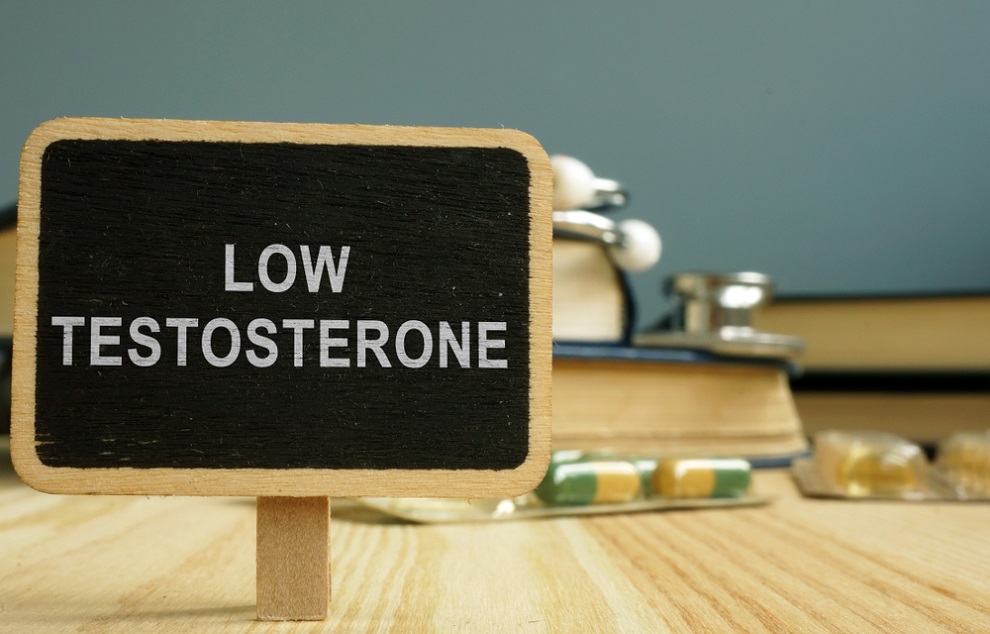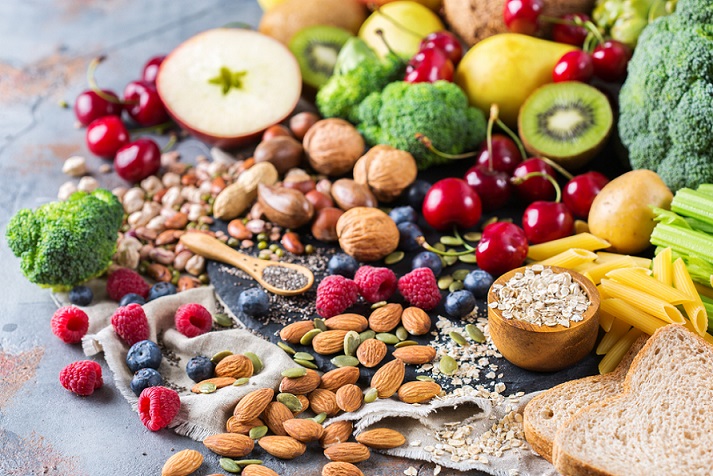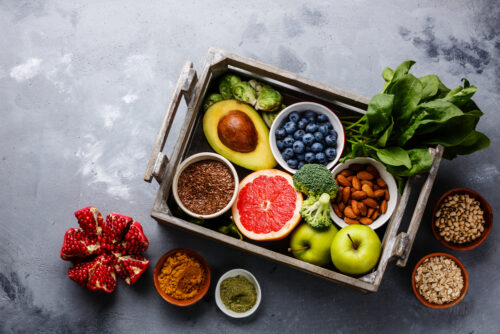Quick Summary
- Oxidative stress has a significant impact on testosterone and overall hormonal and abnormal semen parameters function in men.
- Antioxidants such as Vitamin C, E, zinc, selenium, CoQ10, and glutathione help reduce this oxidative damage.
- Nutrient-rich foods like berries, leafy greens, nuts, seeds, and fatty fish provide key antioxidants for men.
- Lifestyle habits like exercise, stress management, and whole-food diets are crucial for supporting antioxidant levels.
- Antioxidant supplementation and physician-guided plans from Male Excel can enhance hormone health for optimal vitality.
Hormonal health is the cornerstone of male vitality. From energy and muscle mass to mood, libido, and cognitive clarity, hormones, particularly testosterone, govern nearly every biological process in the male body.
But many men overlook a critical factor affecting hormone and sperm production: oxidative stress. This silent threat disrupts the human body's internal balance and undermines testosterone levels, even in otherwise healthy individuals.
When unchecked, these radicals damage cellular structures, including impaired sperm DNA damage, as well as damage to proteins and lipids essential to hormone production and signaling. Over time, this damage can suppress the human body's ability to maintain adequate testosterone levels, contributing to poor semen parameters and male infertility.
This is where antioxidants step in. They neutralize harmful free radicals, reduce inflammation, support endocrine organ health, and help stabilize hormone signaling pathways. In this article, we'll examine the major antioxidants that support male hormonal balance.
We'll look at how oxidative stress interferes with testosterone production and how targeted nutrients like Vitamin C, Vitamin E, Coenzyme Q10, selenium, zinc, and glutathione can help restore equilibrium, improve sperm concentration, and optimize sperm motility.

How Hormonal Decline Affects Men And Why Antioxidants Matter
Hormones are vital regulators of nearly every function in a man's body. They influence metabolism, sleep, mood, libido, immune response, and the ability to gain muscle or burn fat.
Chief among these is testosterone, the primary male sex hormone. It plays a pivotal role in male development and continues to shape health outcomes throughout adulthood.
Testosterone production begins to decline naturally after age 30, dropping by about 1% per year. While this is part of the normal aging process, several external factors can accelerate this decline: chronic stress, exposure to endocrine-disrupting chemicals (like BPA and phthalates), poor sleep, sedentary lifestyles, and diets high in processed foods.
These factors increase oxidative stress, which in turn damages the cells involved in hormone and sperm production and regulation, often impacting male fertility. Oxidative stress harms the Leydig cells in the testes, the cells directly responsible for producing testosterone.
It also disrupts the hypothalamic-pituitary-gonadal (HPG) axis, the hormonal signaling network that regulates reproductive hormones. When this system is impaired, the body may struggle to maintain normal testosterone levels, leading to symptoms like fatigue, low libido, mood swings, and decreased physical performance.
It may also impact sperm concentration and sperm motility, which are key sperm parameters and male fertility parameters. This is where antioxidants become crucial. They neutralize free radicals, the unstable molecules that drive oxidative stress.
By reducing cellular damage and supporting healthy hormone signaling, antioxidants help preserve testosterone levels and overall hormonal health.
What Is Oxidative Stress?
Oxidative stress is a cellular imbalance caused by an excess of reactive oxygen species (ROS), commonly referred to as free radicals.
These unstable molecules are natural byproducts of metabolic processes, especially mitochondrial respiration. However, external stressors such as environmental toxins, smoking, poor diet, high blood sugar, and chronic inflammation significantly increase their presence.
ROS are highly reactive and can damage lipids, proteins, and DNA. One of their primary targets is the phospholipid bilayer that forms cell membranes. Through a process called lipid peroxidation, ROS compromise membrane integrity, impairing how cells of sperm function and communicate.
This is especially dangerous in endocrine tissues like the testes, adrenal glands, and the hypothalamus, where precise signaling is critical for hormone production. Oxidative stress also affects steroidogenesis, the process of hormone synthesis.
Key enzymes, such as CYP11A1 and 17β-HSD, which convert cholesterol into testosterone, are sensitive to oxidative damage. Excess ROS can inhibit these enzymes, reducing testosterone output even when cholesterol and other precursors are present.
Moreover, oxidative stress disrupts the hypothalamic-pituitary-gonadal (HPG) axis by impairing the secretion of gonadotropin-releasing hormone (GnRH) and luteinizing hormone (LH). This hormonal miscommunication further suppresses testosterone levels.
Antioxidants play a protective role by neutralizing reactive oxygen species and supporting cellular repair. This helps restore enzymatic activity, stabilize the HPG axis, and ensure that testosterone and other hormones are produced efficiently.
Key Antioxidants For Male Hormonal Health
Targeted antioxidants can help the body combat free radical damage, reduce inflammation, and protect hormone-producing cells. Each antioxidant works through unique biochemical pathways to support testosterone production and endocrine stability. Here's a closer look at six of the most powerful ones for men.
Vitamin C
Vitamin C (ascorbic acid) is a water-soluble antioxidant that plays a key role in adrenal function and hormonal stability. It helps the adrenal glands manage stress by lowering cortisol production, a stress hormone that competes with testosterone for biological resources.
In times of oxidative stress, Vitamin C becomes depleted rapidly, which can impair immune function and hormone synthesis. At the cellular level, Vitamin C scavenges reactive oxygen species (ROS), helping to protect Leydig cells from oxidative damage.
It also regenerates other antioxidants like Vitamin E, enhancing the body's overall antioxidant capacity. Vitamin C is found in citrus fruits, berries, kiwi, and bell peppers, but antioxidant supplementation is often necessary to achieve therapeutic doses that support hormone health.
Vitamin E
Vitamin E is a fat-soluble antioxidant known for its role in protecting cell membranes from lipid peroxidation. In the context of male health, it shields spermatozoa from oxidative damage, thereby supporting male fertility parameters and reproductive and sperm function.
It also helps stabilize testosterone levels by preserving the structural integrity of endocrine tissues. Vitamin E neutralizes lipid radicals, which are especially destructive in fatty tissues like the testes. Its synergistic action with selenium enhances antioxidant enzyme activity, especially glutathione peroxidase, an enzyme that defends reproductive cells from free radical attacks.
Studies suggest that Vitamin E supplementation can improve human sperm motility and testosterone levels in men with male infertility. This can make treating male infertility easier. [1]
Sources of Vitamin E include nuts, seeds, spinach, and vegetable oils. Supplementation may be recommended for individuals with high oxidative stress or poor dietary intake.
Zinc
Zinc is an essential trace mineral and a powerful antioxidant cofactor.
It plays a direct role in testosterone synthesis by supporting the sperm function and that of several enzymes involved in steroidogenesis, including 17β-HSD. Zinc also contributes to DNA repair, immune function, and the activity of over 300 enzymes.
Low zinc levels are strongly correlated with reduced testosterone. Deficiency impairs the Leydig cells' ability to produce testosterone and can increase aromatase activity, an enzyme that converts testosterone into estrogen. Zinc also has antioxidant properties that reduce the impact of reactive oxygen species on hormone-producing tissues.
Rich sources include oysters, beef, pumpkin seeds, and lentils. Men with low testosterone or high physical stress often require zinc supplementation to restore hormonal balance.
Selenium
Selenium is a trace mineral with potent antioxidant properties. It supports both thyroid and testicular health, which are closely linked to male hormonal status.
Selenium forms part of selenoproteins, including glutathione peroxidase, which neutralizes harmful peroxides and shields reproductive tissues. Together with Vitamin E, selenium boosts antioxidant defenses in the testes, improving semen quality.
It shows statistically significant improvement in human semen characteristics and helps increase testosterone levels, especially in those facing male infertility issues. Selenium also contributes to optimal thyroid function, which indirectly supports testosterone production through metabolic regulation.
Dietary sources of selenium include Brazil nuts, tuna, and eggs. However, soil depletion has made supplementation a necessary consideration in many parts of the world.
Coenzyme Q10 (CoQ10)
CoQ10 is a lipid-soluble antioxidant found in mitochondrial membranes where it facilitates ATP (energy) production. It plays a vital role in supporting the energy-intensive process of testosterone synthesis.
CoQ10 stabilizes cellular membranes and prevents oxidative damage to mitochondrial DNA within Leydig cells. By enhancing mitochondrial efficiency and reducing oxidative stress, CoQ10 supports overall hormonal output and energy levels.
Studies show selenium and CoQ10 can improve semen parameters like sperm concentration, sperm count, sperm motility, and testosterone levels, particularly in men with fertility challenges. [2]
Sources of CoQ10 include fatty fish, organ meats, and whole grains, but the body's natural production declines with age, making supplementation an important strategy for older men or those under chronic stress.
Glutathione
Glutathione is known as the body's "master antioxidant." It is synthesized in the liver from three amino acids: cysteine, glycine, and glutamate. It's crucial for detoxification, cellular repair, and hormone regulation.
It helps recycle other antioxidants, reduces inflammation, and maintains the redox balance within hormone-producing tissues. In the context of testosterone, glutathione protects Leydig cells from oxidative damage and assists in maintaining healthy mitochondrial function.
It also supports liver detox pathways, which are essential for metabolizing excess hormones and preventing hormonal imbalances. Low glutathione levels are associated with reduced fertility, poor energy, and accelerated aging.
While it's found in foods like spinach, avocado, and asparagus, oral or IV supplementation is often used in clinical settings to correct deficiencies and restore hormonal health.

Foods For Antioxidant Therapy To Support Hormonal Health
Food is one of the most powerful tools for hormone optimization. A diet packed with antioxidants not only reduces oxidative stress but also delivers a complete 'antioxidant therapy'.
It provides essential micronutrients that fuel testosterone production, improve insulin sensitivity, and reduce inflammation. The foods below are rich in vitamins, polyphenols, flavonoids, and healthy fats that synergize with your body's hormonal system.
Berries (Blueberries, Raspberries)
Berries are loaded with anthocyanins and other polyphenols, which are natural plant compounds that reduce inflammation and neutralize free radicals.
Studies show that regular consumption of berries can reduce markers of oxidative stress and improve cardiovascular function, which is closely tied to erectile health and hormone regulation. Blueberries, in particular, are rich in resveratrol, which may help protect Leydig cells and improve blood flow to the testes. [3]
Berries also contain Vitamin C and fiber, supporting adrenal function and gut health. Since gut health influences hormone metabolism, this connection is crucial. For maximum benefit, consume them raw or in smoothies without added sugar.
Leafy Greens (Spinach, Kale)
Dark leafy greens are rich in magnesium, folate, chlorophyll, and antioxidants like lutein and zeaxanthin.
Magnesium directly affects testosterone regulation by reducing sex hormone-binding globulin (SHBG), which frees up more active testosterone in the bloodstream. Folate supports methylation, a vital process for DNA repair and hormone synthesis.
Leafy greens also provide detox support through sulfur compounds and fiber, which help eliminate excess estrogen and environmental toxins that can disrupt testosterone balance. Including a variety of greens daily helps optimize hormonal and metabolic function.
Nuts And Seeds (Almonds, Sunflower Seeds)
These are high in Vitamin E, selenium, and essential fatty acids. Almonds and sunflower seeds, for example, are potent sources of fat-soluble antioxidants that protect sperm cells and endocrine tissues from oxidative damage.
The healthy fats also support cholesterol levels, the building block of testosterone. Seeds like pumpkin and sesame also offer zinc, a crucial mineral for testosterone synthesis. Incorporating a handful of raw or lightly roasted nuts/seeds into daily snacks or salads can have a powerful impact on hormonal resilience.
Dark Chocolate (High Cocoa Content)
Dark chocolate (at least 70% cacao) contains flavonoids and magnesium, both of which have been linked to improved vascular function and testosterone levels.
Flavonoids improve nitric oxide availability, enhancing blood flow, which is essential for erectile function and testicular health. Cocoa also provides iron and zinc in modest amounts. However, portion control is important. Choose dark chocolate with low sugar content to avoid insulin spikes that can sabotage hormone balance.
Green Tea
Green tea contains catechins, particularly EGCG (epigallocatechin gallate), which offer antioxidant, anti-inflammatory, and metabolism-boosting effects. Drinking 2-3 cups per day of organic green tea may offer protective benefits for hormone-producing organs while supporting energy and mental clarity.
Pomegranates
Rich in polyphenols and nitrates, pomegranates have been shown to improve blood flow, lower blood pressure, and enhance testosterone levels.
In one clinical trial, men who drank pomegranate juice daily for two weeks saw a measurable increase in salivary testosterone levels and improvements in mood. The antioxidant capacity of pomegranates also supports cardiovascular and prostate health. Both are essential for maintaining long-term hormonal stability.
Fatty Fish (Rich In Omega-3s)
Salmon, mackerel, sardines, and other fatty fish are loaded with omega-3 fatty acids, which are powerful anti-inflammatory agents that improve testicular function, support sperm quality and sperm motility, and lower oxidative stress.
It also helps reverse decreased sperm count by reducing the production of inflammatory cytokines and supporting sperm membrane fluidity. They also contain Vitamin D, which is directly linked to testosterone levels. Regular consumption of wild-caught fatty fish can help maintain optimal hormone profiles while supporting cardiovascular and cognitive health.
The Role Of Lifestyle In Antioxidant Levels
Can Supplements Help?
Yes, especially when the diet falls short. Antioxidant supplements like vitamin C, E, zinc, and CoQ10 are widely used to support male hormonal health.
Male Excel offers physician-guided hormone therapy that integrates nutrition and supplement advice. Our plans are based on lab tests, ensuring personalized care.
Integrating antioxidants into hormone therapy
Antioxidants may improve the outcomes of hormone replacement therapy (HRT). When combined with testosterone therapy, they can support better mood, energy, and libido.
Male Excel recognizes these synergies. Our providers tailor treatment to include nutritional recommendations that complement hormonal treatments.
Conclusion
Antioxidants play a vital role in protecting and supporting male hormonal health. Reducing oxidative stress, they help maintain healthy testosterone levels and improve overall well-being.
From nutrient-rich foods to targeted supplements, there are many ways to incorporate these powerful allies into your daily routine. Prioritizing antioxidant support can help men feel their best at any stage of life.
References
- De Rosa, A. (2022, July 14). Comparison of L-Carnitine vs. Coq10 and Vitamin E for idiopathic male infertility: a randomized controlled trial. European Review. https://www.europeanreview.org/article/29194
- Alahmar, A. T. (2018). The effects of oral antioxidants on the semen of men with idiopathic oligoasthenoteratozoospermia. Daehan Saengsik Uihak Hoeji/Clinical and Experimental Reproductive Medicine, 45(2), 57-66. https://doi.org/10.5653/cerm.2018.45.2.57
- Basu, A., Rhone, M., & Lyons, T. J. (2010). Berries: emerging impact on cardiovascular health. Nutrition Reviews, 68(3), 168-177. https://doi.org/10.1111/j.1753-4887.2010.00273.x





